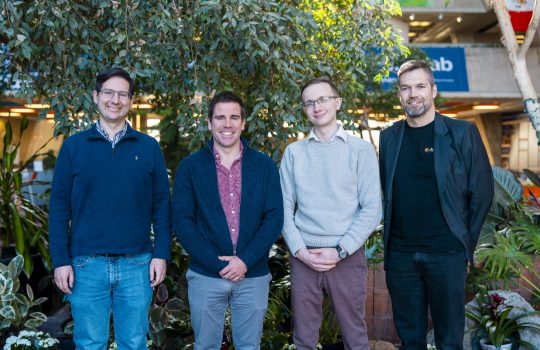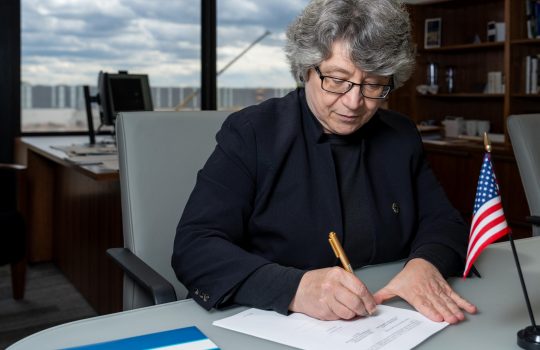Fermi National Accelerator Laboratory announced that it has entered into a Cooperative Research and Development Agreement with xLight, Inc. focused on collaboration to develop critical components key to semiconductor manufacturing in the U.S. The work under the first project of the CRADA will focus on superconducting radio frequency cavity and cryomodule development and testing — two areas in which Fermilab researchers have years of experience and expertise. Fermilab, a U.S. Department of Energy laboratory, is a world leader in superconducting radio frequency technology, which is central for advanced particle accelerators like the Proton Improvement Plan II project under construction at Fermilab.
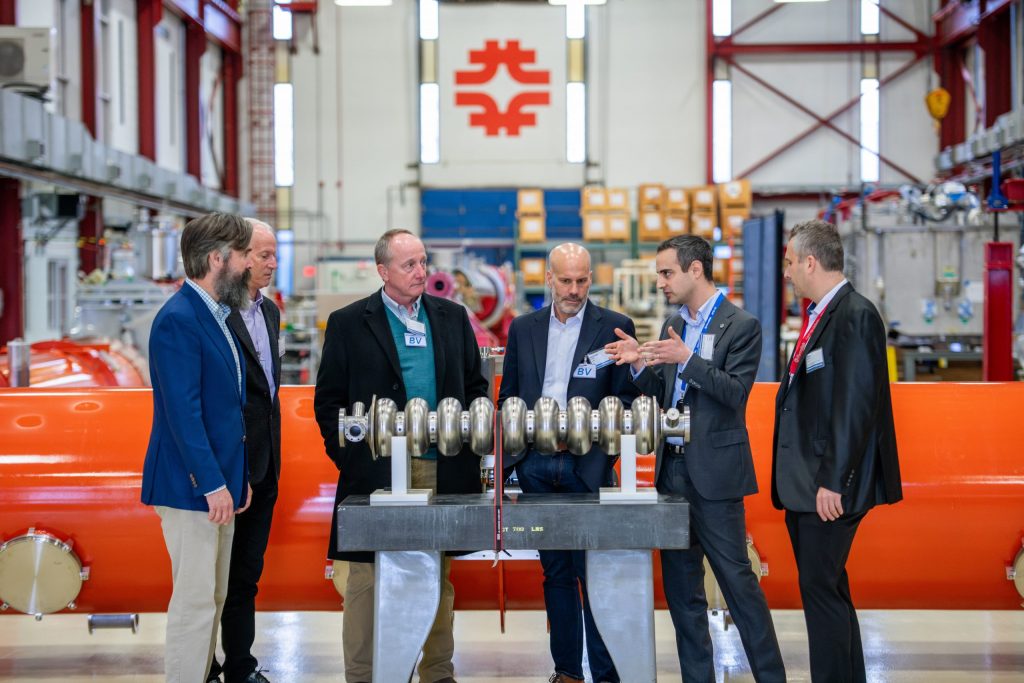
Leaders and researchers from Fermilab and xLight, Inc. meet on April 4 to kick off a new partnership that will enable the production of more efficient and advanced semiconductor chips. Photo: Dan Svoboda, Fermilab
Director of Fermilab Lia Merminga and Nicholas Kelez, CEO of the Silicon Valley start-up xLight, met on April 4 to formally launch the anticipated long-term collaboration to foster the development of an extreme ultraviolet light source for the manufacturing of semiconductors in the U.S. This collaboration will enable the production of advanced chips using less energy, making the entire chip manufacturing process more efficient and effective. These chips are critical to many aspects of modern life – from smart phones and computers to the military, data centers and artificial intelligence. This improvement to semiconductor manufacturing will also positively impact important fields like biotechnology and robotics.
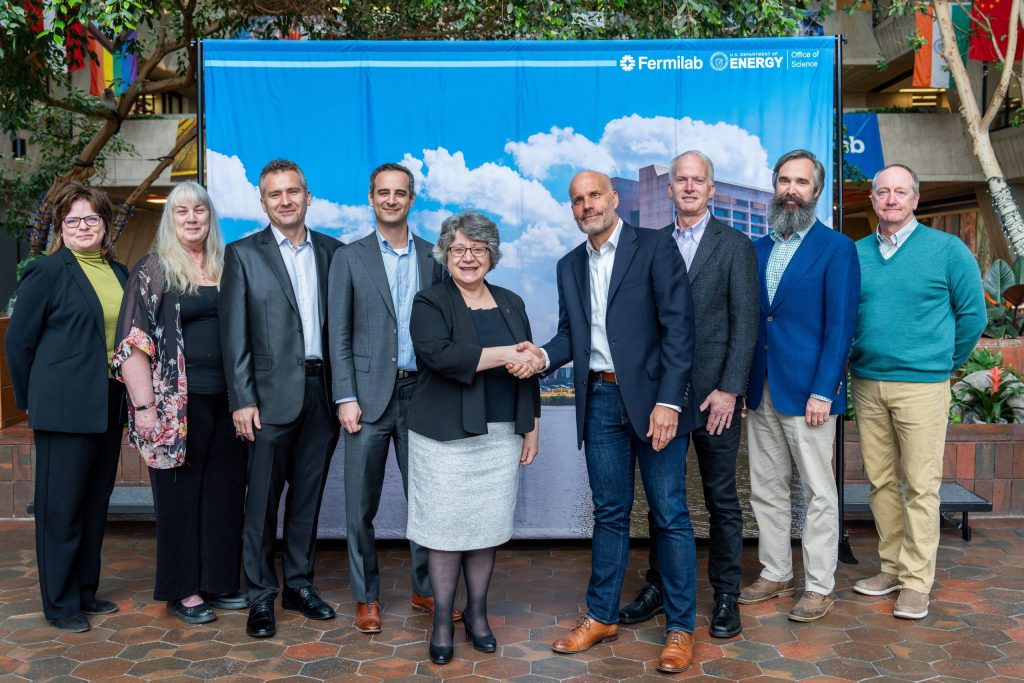
Director of Fermilab Lia Merminga and xLight, Inc. CEO Nicholas Kelez shake hands to solidify a new partnership that will transition technologies developed at Fermilab for commercial applications. Photo: Dan Svoboda, Fermilab
“The partnership with xLight represents a unique opportunity to transition the technologies that Fermilab develops for our science mission to commercial applications. These collaborations spark innovation and support DOE’s investments in science and technology that can benefit all Americans,” said Merminga.
“xLight’s team has extensive experience working with national labs, and we have a deep appreciation for Fermilab’s excellent work and leadership in particle accelerator technologies,” said Kelez.
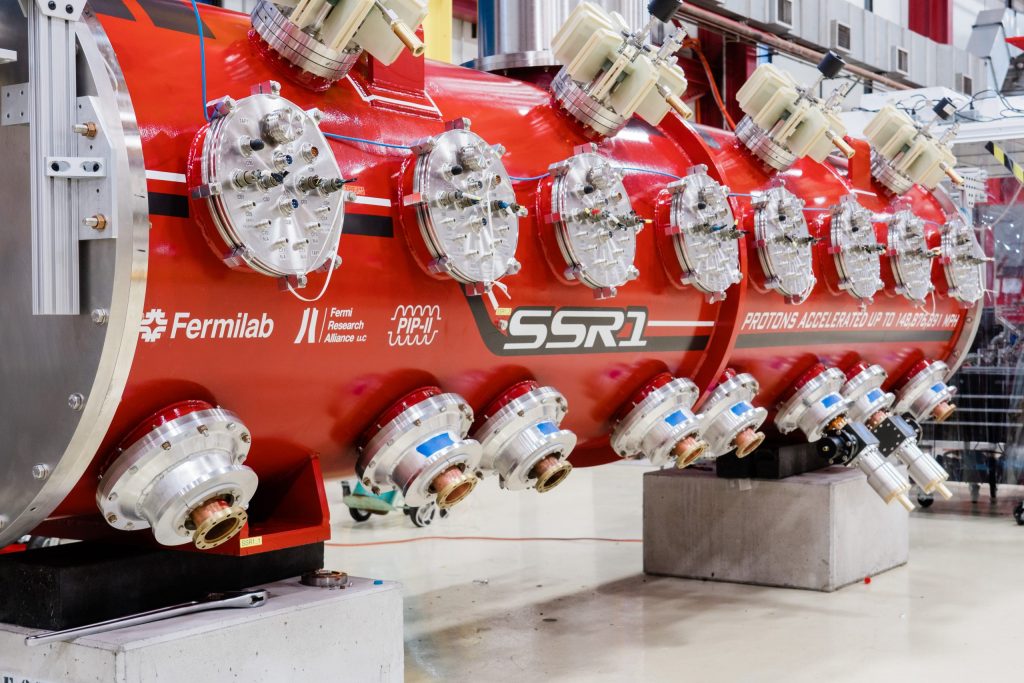
Cryomodules are the largest components of a superconducting particle accelerator. They house structures called superconducting accelerator cavities, which are lined up end-to-end inside the cryomodule. These cavities boost the energy of a particle beam as it travels through one after the next.nPhoto; Tom Nicol, Fermilab
Fermi National Accelerator Laboratory is supported by the Office of Science of the U.S. Department of Energy. The Office of Science is the single largest supporter of basic research in the physical sciences in the United States and is working to address some of the most pressing challenges of our time. For more information, please visit science.energy.gov.


